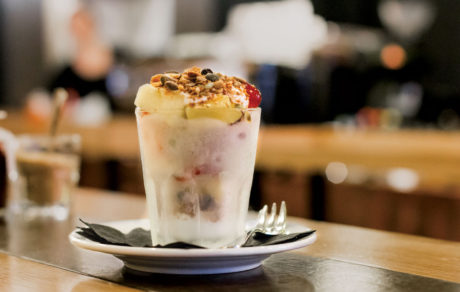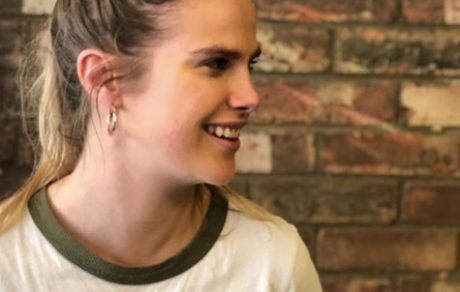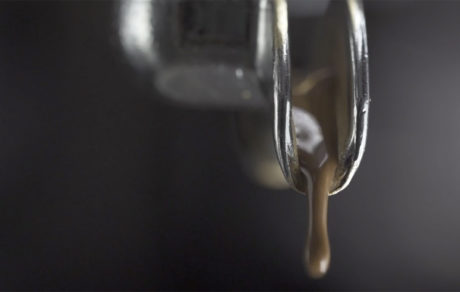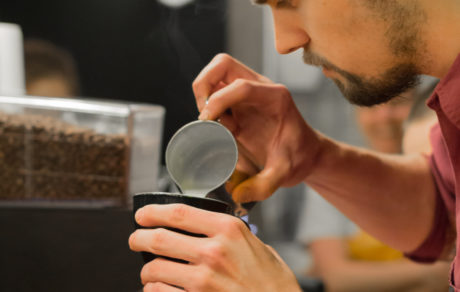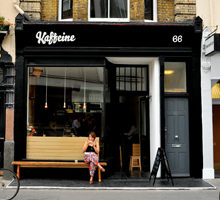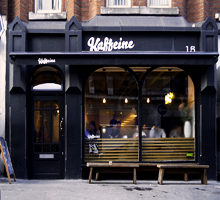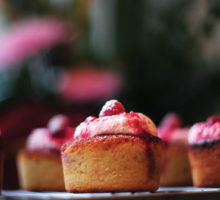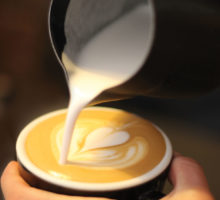The guest espresso program and Shots Per Kilo (SPK's) - An Explanation
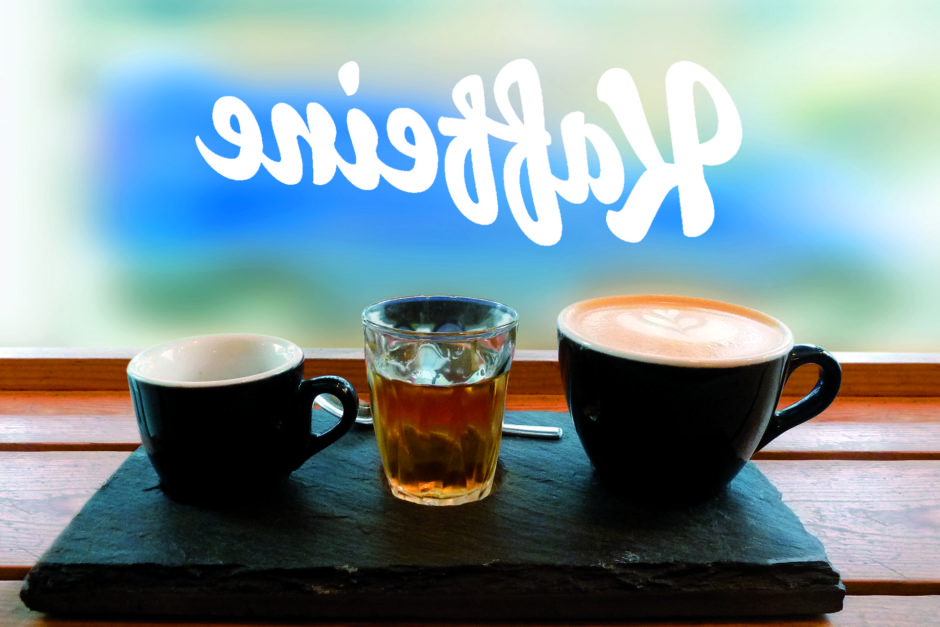
Quite a long while ago, one of our former superstar lead baristas came to me with the idea of running a guest espresso on the bar. This, they said, would be perfect for our baristas/staff to try different coffees and work with them, great for our customers to be able to try these coffees from other parts of the world and amazing for the reputation of the business.
Great idea, super idea, love it, only problem is, we have very limited space and already have two grinders on the bar, one for Square Mile Red Brick and one for Square Mile decaf. Now the very kind and accommodating people at Square Mile said ‘yes, of course you can have another coffee on the bar’ and so off we went.
So we decided to take off the decaf on the weekends and offer this guest espresso on weekends only.
The lead barista had the responsibility of sourcing the coffee from the roasters and also buying in retails bags to sell as well. We allocated them an hour a week to organise their calendar, get tasting notes, liaise with the roastery, do the costings, discuss the program with myself and the manager of the store etc etc.
We were very particular with the costings of it all, I designed a special spreadsheet that was able to calculate the cost of the coffee per kilo, add in the shipping and then work out how much per shot it would cost and compare this against Red Brick. We worked out that the majority of coffees on as a guest came in at a higher costs per shot, so we added a price of .50 pence at the till to help make up for it, that and the labour time it took to source and organise the coffees. We usually ordered 2 or 3 kilos of coffee for the weekend. If you worked on a very simple and easy calculation 50 shots per kilo, that is 100 or 150 coffee sold extra, so a simple and easy maximum gross £75.00 extra in the till (take away your VAT at 20% after that though).
With these costings, some coffees were just not able to go on the bar, while others were actually cheaper than SQM with no shipping, so sometimes we did not charge the extra 50p at the till. Most though came in over, but that was based on our estimated shots per kilo costings.
We also worked out the cost price including shipping for the retail bags and the mark up %age of our other regular retail coffees and worked out how much we could sell them for. Of course you then had to predict how much coffee to buy in advance and hope that it sold, otherwise it would go to waste, or be sold at a knock down price later in it’s life.
I would happily say that this program worked very well indeed. Baristas loved it, staff loved it, the customers who came in for the coffees loved it, perhaps I may say social media even loved it a little bit.
This is where we calculate the amount of shots sold that day and divide that by the amount of kilos we went through that day. We found that the weekend numbers were way, way down on our weekday numbers. Like maybe 10 shots per kilo less. So if you were lucky enough to be doing 8 kilos a day, that is 80 coffees less, per day! Of course, we allowed that staff and baristas would be trying some, having a few extras just in case, then there was the dialling in of a coffee that we were just not used to, working with it during the day, not selling many so not being used to it when a sale was made, maybe not getting it right, making it again. This was not for all of them, some were absolutely amazing and worked very well indeed.
We also found that the sales we made were very much down to the person on the till and how good a sales person they were, which also directly related to how good the coffee was or how much they believed in it. Because unfortunately, for whatever reason, occasionally not all guest espressos were amazing. So when we tried it in the morning and went, ‘oh, it’s okay’, it was hard to sell.
Then the absolute majority of the customers who came in on the weekends really ‘just wanted a coffee’. To then be given the problem of deciding what coffee to have right at the point of the till, proved to be quite difficult indeed. Then they have to pay an extra 50 p for it.
Then we had the customers who wanted decaf…’oh sorry we do not have decaf today…’ well, why not?’ On some weekends, there were more requests for decaf then there were ‘what is the guest this today?’
After much debate and consideration, we stopped the program in February this year. Perhaps we were doing it wrong, perhaps it is just our minimal bar and space and menu does not work for it, perhaps other cafes do it well and can justify this. But if you have a food menu item that just does not sell, or you can gain more value from changing that menu item to another, you would change it would you not?
It was a really hard decision, because the value to the baristas and staff is so great in that they are trying different coffees and working with roasteries and building a reputation, but at the end of the day, in this business at least, there was not enough value in the business of a Guest Espresso Program.
But is is not just a value for money consideration, it is also the disappointment of those customers who want decaf, and the perception of a business that ‘pushes’ a sale onto a customer when they just want a coffee and if that coffee is with milk or with water added (95% of sales), the taste difference is very minimal indeed and also asking the FOH person to push that sale, it’s just not something I am comfortable with..*yes, 5% of our sales are espresso, so if you have a guest ‘espresso’ that is not many sales.
To them I am sorry.
However, we are going to trial guest retail program in the lead up to Christmas, so we will have a good range of different coffees for you to try at home, and we will run our in-house cupping programs more often.
Peter Dore-Smith
Director
Kaffeine Ltd
66 Great Titchfield st.
15 Eastcastle st.
